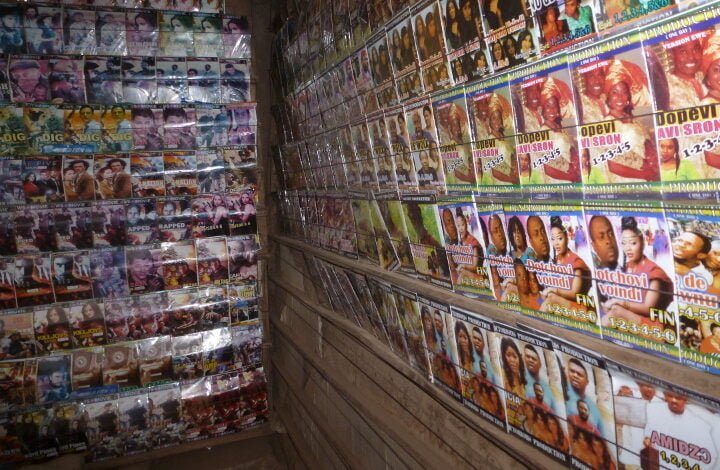Togo: The «voice-over» take over the original

Les studios de réalisation de film au Togo, à défaut d’avoir les moyens pour tourner des films originaux, se livrent depuis quelques années déjà à la traduction en langues locales des productions « Ibo. » Ces dernières qui ont toujours intéressé le public togolais sont devenues encore plus populaires avec les « voice-over. » Mais si les traductions se vendent mieux, elles font tomber les originaux… Reportage !
Film production studios in Togo, unless you have resources to make original films, have been engaged for several years in translating the «Ibo» productions into local languages. These productions, in which the Togolese public has always been interested, have become even more popular with the «voice-over». But if the translations are sold better, they make the originals fall … Report!
In Lomé, everyone agrees. In most film production studios, what is best does not include the films, but rather the translations into local languages with a reproduction at the end, for example, Nigerian films (sometimes also Ghanaian ones), commonly called «Ibo» of the name of the most popular Nigerian ethnic group in Togo, which are sold directly on the street.
A decade of voice-over
As Toussaint Kalepé, an audiovisual promoter in Togo, explains, « Here, the videos are sold by Nigerians and Guineans, most of them moving from district to district to make them available to Nollywood lovers, much appreciated by the public.» But according to the Togolese actor Komi Yovo, who is also a content producer, the sector has developed rapidly over the past decade. «10 years ago, the Togolese population preferably started to watch Ibo films compared to other productions. They were sold rapidly and moved from people to others, but they were rarely translated… Today we only do translations. »
The weight of local languages
Zion Television, owned by Luc Russel Adjaho, broadcasts Ibo films three times a day, after translating by the staff. Since then, very few people have been interested in the originals of these films. « You see, the translated films have two or three advantages. First, they describe scenes of life. Second, they show the victory of good over evil, and third, they serve to advise young people… Now to translate them into a language accessible to all, you imagine how they will be successful », said Barnabé Séwadé, translator of Ibo films into Ewé, a dialect in south-Togo.
An opportunity for several millions
According to a survey by the Higher Business School, 60% of Togolese families have at least one DVD of Ibo film translated, which generates several millions to the involved actors. « At the ministry level, we are looking for ways and means to reorganize the sector and benefit the Togolese economy, » says Gregoire Awosso, in charge of film production at the Ministry of Arts and Culture of Togo. According to him, the authorities are considering the possibility to introduce copyrights, levy taxes and create a statistical tool for the sector.
Sales of the original have declined
Ibo movies are sold between CFA 300 and CFA 500. Generally sold by Nigerian wholesalers, at the Lomé central market, such as Mohammed Inoussa for whom the sale of non-translated films has declined every day. « Before, the retailers came every day to snatch our DVDs, and I was selling up to 1000 DVDs per day. But today, we have fallen to CFA 10,000 per day, sometimes much less… » He explains how the studios have grabbed the distribution: « they manage the sales of translation themselves. We are kept apart. »
Growth prospects
According to the actor Komi Yovo, there are prospects for Nigerian wholesalers, if « they adapt to the rise of voice-over. » For, he thinks, the latter are the leaders in this new market, supplying films to the studios, who then translate and deliver them to the retailers who, finally, sell them to the consumers. This is confirmed by Barnabé Séwadé: « out of 300 DVDs purchased per month from Nigerians, to date, only 110 are translated and reproduced. »
Author : Emmanuel Atcha // Photo : Un étalage de DVD traduits en Éwé, une langue du sud Togo – © Emmanuel Atcha







